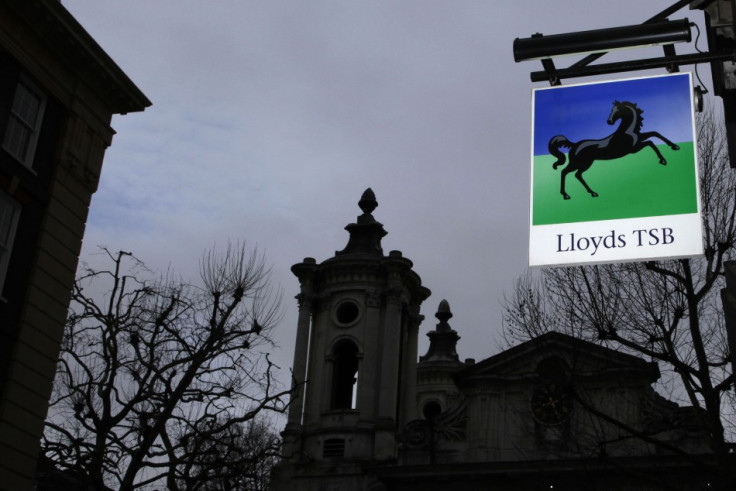Mis-Selling Derivatives Scandal: Lloyds Used Fifth of Compensation Pot but Won't Add More Cash

Lloyds Banking Group has already used up nearly a fifth of the total amount it has set aside to compensate British businesses for mis-selling them complex derivatives but did not add any more cash to the redress fund.
Lloyds, which is 39% owned by the state, confirmed it will not add any more money to the £400m (€457m, $606m) it has already set aside to compensate small and medium-sized enterprises that were mis-sold interest rate swap agreements (IRSA).
According to the bank's half year results statement, Lloyds has already used £20m from the compensation pot, while a further £53m was utilised in the first half of this year.
However, the group warned that "a number of uncertainties remain as to the eventual costs given the inherent difficulties in determining the number of customers within the scope of the review and the amount of any redress to be provided to customers."
In June, a study by Bully-Banks revealed that banks mis-selling derivatives to Britain's small-to-medium enterprises has cost the economy £1.7bn in lost revenues to the Treasury, as well as, 400,000 jobs.
IRSAs are contracts between a bank and its customer where typically one side pays a floating, or variable, rate of interest and receives a fixed rate of interest payments in exchange. They are used to hedge against extreme movements in market interest rates over a given period.
Companies that have seen the value of these products move against them as rates fell during the recession now owe banks crippling sums of money in interest payments each year.
But if the businesses want to cancel the contracts, they are faced with higher costs.
Where Has the Money Gone?
While it may seem positive that the bank has used a slice of its IRSA mis-selling fund, it is likely that a bulk of that has gone on administrative costs.
In June last year, Lloyds, Barclays, HSBC and RBS were forced to review some 40,000 IRSAs sold to UK businesses, under an Financial Conduct Authority (FCA) ruling.
However, at the end of January 2013, the FCA unveiled its findings from a pilot scheme that examined the sale of 173 IRSAs to British firms and found that at least 90% of those did not comply with at least one or more regulatory requirements.
IBTimes UK has extensively reported on the scandal and still, over a year after the initial review was launched, only a handful of SMEs have received an offer of redress.
Moreover, even if a bank offers a redress settlement, it could be over a year from when the firms actually receive the cash.
For example, Barclays has offered to pay Landish Consultants £1.5m in compensation but the company's owner Bill Haslam could wait for months, or even a year, for any form of payment.
"To know that we will be getting back all of the £1.3m of payments that were taken, is great news, but sadly it's still tainted somewhat as despite all of this we will not get any of this money back until we agree our consequential losses as well, which will be complex and will take us some time of course," said Haslam.
"This could take us several months and it seems unfair to agree that someone has suffered and then continue this suffering further."
While all banks will attest to working as hard as they can get redress to customers, a number of sources close to the financials have illustrated to IBTimes UK that behind the scenes, some groups haven't even properly started the reviews process.
According to IBTimes UK guest writer Mason Richman, who is a senior trader at one of the world's largest banking groups and has worked in the industry for 15 years, banks are paying up to £800 a day for derivatives experts to help them review cases, even though their work hasn't even started yet.
© Copyright IBTimes 2025. All rights reserved.






















